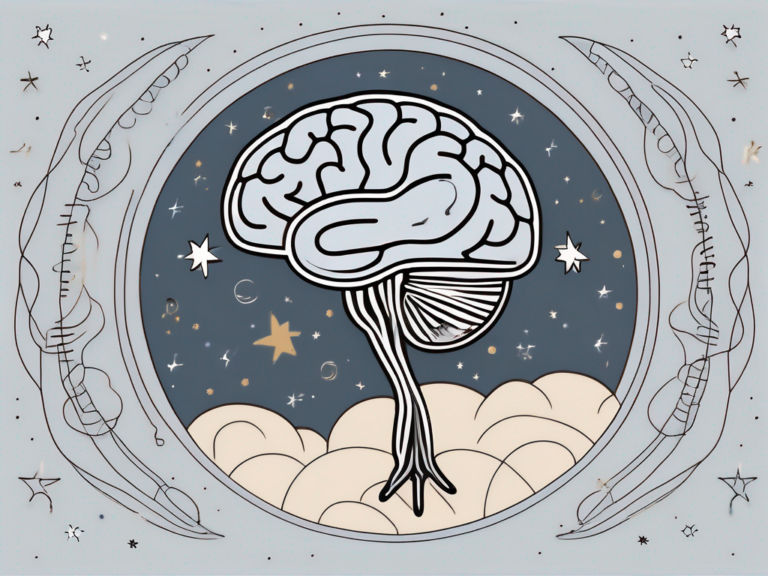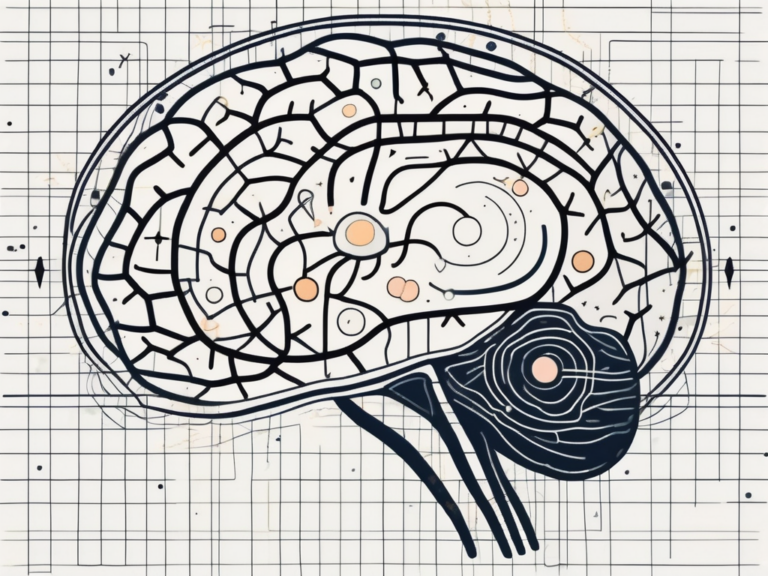Tips for Improving Sleep Quality When You Have Pain
If you suffer from pain, you know how challenging it can be to get a good night’s sleep. Pain can often disrupt your sleep cycle, leaving you feeling tired and groggy the next day. In this article, we will explore various tips and strategies to help you improve your sleep quality when you have pain. From understanding the connection between pain and sleep to exploring non-medical and medical interventions, we will cover it all. So, let’s dive in and discover how you can get a better night’s sleep even when pain is a constant companion.
Understanding the Connection Between Pain and Sleep
We all know that pain can make it difficult to fall asleep, but it can also significantly impact the quality of your sleep. Chronic pain, in particular, can lead to sleep disturbances that further exacerbate your pain levels. When you’re in pain, it can be hard to find a comfortable position and stay asleep throughout the night. This lack of restorative sleep can leave you feeling fatigued, irritable, and unable to cope with your pain effectively.
On the other hand, acute pain, such as an injury or post-surgical discomfort, can also disrupt your sleep cycle. The pain can wake you up frequently during the night or make it challenging to fall back asleep. These interruptions can impact the different stages of sleep, including the deep sleep that is vital for your body’s rejuvenation and healing.
Furthermore, the relationship between pain and sleep is not a one-way street. Sleep deprivation can actually lower your pain threshold, making you more sensitive to pain. Studies have shown that when individuals are sleep-deprived, their pain perception increases, and they may experience pain more intensely. This can create a vicious cycle, where pain disrupts sleep, and lack of sleep intensifies pain, leading to a never-ending loop of discomfort.
Moreover, the impact of pain on sleep goes beyond the physical realm. It can also affect your mental and emotional well-being. Sleep deprivation due to pain can contribute to mood disorders such as anxiety and depression. It can impair cognitive function, making it difficult to concentrate, remember things, and make decisions. Additionally, the constant struggle with pain and lack of sleep can lead to feelings of frustration, helplessness, and a decreased overall quality of life.
The Impact of Chronic Pain on Sleep
Chronic pain can have a profound effect on your sleep quality. Research suggests that nearly 50% of individuals experiencing chronic pain also struggle with sleep disturbances. The constant pain can lead to increased stress and anxiety, making it difficult to relax and fall asleep. Furthermore, pain can disrupt the production of certain sleep hormones, such as melatonin, which regulate your sleep-wake cycle. The combination of physical discomfort and sleep disruptions can create a vicious cycle, with pain worsening sleep quality and poor sleep exacerbating pain levels.
To break this cycle, it’s essential to address both the pain itself and the underlying sleep problems. By targeting pain management and adopting healthy sleep habits, you can improve your sleep quality and overall well-being.
One important aspect to consider when managing chronic pain and sleep disturbances is the impact of lifestyle factors. Engaging in regular physical activity, such as low-impact exercises or stretching, can help alleviate pain and promote better sleep. Exercise releases endorphins, which are natural painkillers, and can also improve sleep quality by reducing anxiety and promoting relaxation.
In addition to exercise, maintaining a consistent sleep schedule can also greatly benefit individuals with chronic pain. Going to bed and waking up at the same time every day helps regulate your body’s internal clock, making it easier to fall asleep and wake up feeling refreshed. Creating a relaxing bedtime routine, such as taking a warm bath or practicing relaxation techniques like deep breathing or meditation, can further enhance your sleep quality.
How Acute Pain Can Disrupt Your Sleep Cycle
While acute pain is often short-lived, it can still significantly impact your sleep. When you experience acute pain, such as a sports injury or post-operative discomfort, it can be challenging to find a comfortable position to sleep in. The pain can make it difficult to relax and fall asleep, resulting in sleep deprivation and added stress on your body.
Additionally, acute pain can disrupt your sleep cycle by altering the different stages of sleep. It can cause frequent awakenings throughout the night and reduce the amount of time spent in deep sleep, which is crucial for physical recovery. Consequently, inadequate sleep can slow down the healing process and prolong your recovery time.
Let’s delve deeper into how acute pain affects your sleep cycle. When you experience pain, your body’s natural response is to stay alert and vigilant, making it harder to fall asleep. The discomfort can trigger a heightened state of arousal, leading to increased heart rate and shallow breathing. This heightened state of alertness can prevent you from entering the deep sleep stage, where your body repairs and rejuvenates itself.
Furthermore, acute pain can disrupt the balance between rapid eye movement (REM) sleep and non-rapid eye movement (NREM) sleep. REM sleep is the stage where most dreaming occurs, and it is essential for cognitive function and emotional well-being. NREM sleep, on the other hand, is crucial for physical restoration and growth. Acute pain can disrupt this delicate balance, causing fragmented sleep patterns and reducing the overall quality of your rest.
Moreover, the impact of acute pain on your sleep cycle extends beyond the physical realm. Sleep deprivation resulting from pain can lead to mood disturbances, such as irritability, anxiety, and depression. The lack of quality sleep can also impair your cognitive abilities, affecting your concentration, memory, and decision-making skills. These cognitive deficits can further exacerbate the challenges you face in managing and coping with acute pain.
The Importance of Sleep Hygiene
When it comes to improving sleep quality, one of the first areas to address is sleep hygiene. Sleep hygiene refers to the habits and practices that promote good sleep. By adopting healthy sleep hygiene practices, you can create an environment conducive to restful sleep and minimize the impact of pain on your sleep quality.
Defining Sleep Hygiene
Sleep hygiene encompasses a variety of factors that influence your sleep quality. These include your sleep environment, bedtime routine, and lifestyle choices that can either promote or hinder sleep. By paying attention to these factors and making positive changes, you can optimize your sleep and enhance your overall well-being.
Key Components of Good Sleep Hygiene
There are several key components to good sleep hygiene. Let’s explore them:
- Establish a regular sleep schedule: Try to go to bed and wake up at the same time every day, even on weekends. This helps regulate your body’s internal clock and promotes a consistent sleep pattern.
- Create a soothing bedtime routine: Engage in relaxing activities before bed, such as reading, taking a warm bath, or practicing meditation. These activities can signal to your body that it’s time to unwind and prepare for sleep.
- Create a sleep-friendly environment: Ensure that your sleep environment is quiet, dark, and comfortable. Invest in a good quality mattress and pillows that provide adequate support for your body. Consider using blackout curtains or an eye mask to block out any unwanted light that may interfere with your sleep.
- Avoid stimulating substances: Limit or avoid consuming caffeine or nicotine close to bedtime, as they can interfere with your ability to fall asleep. Similarly, alcohol may initially make you feel drowsy but can disrupt the quality of your sleep later in the night.
- Engage in regular physical activity: Regular exercise can help promote better sleep. Aim for at least 30 minutes of moderate-intensity exercise most days of the week. However, avoid exercising too close to bedtime, as it can energize your body and make it difficult to fall asleep.
- Create a technology-free zone: Electronic devices emit blue light, which can suppress the production of melatonin and interfere with your sleep. Establish a technology-free zone in your bedroom and refrain from using electronics for at least an hour before bed.
- Manage stress and anxiety: High levels of stress and anxiety can disrupt your sleep. Explore stress-management techniques such as deep breathing exercises, mindfulness meditation, or writing in a journal before bed to calm your mind and prepare for sleep.
Now that we have explored the key components of good sleep hygiene, let’s delve deeper into the importance of each component. Establishing a regular sleep schedule not only helps regulate your body’s internal clock, but it also ensures that you get enough sleep consistently. By going to bed and waking up at the same time every day, you train your body to follow a natural sleep-wake cycle, which can lead to better sleep quality and overall well-being.
Creating a soothing bedtime routine is another crucial aspect of sleep hygiene. Engaging in relaxing activities before bed helps signal to your body that it’s time to wind down and prepare for sleep. Reading a book, taking a warm bath, or practicing meditation can all help calm your mind and promote a sense of relaxation, making it easier for you to fall asleep and stay asleep throughout the night.
Non-Medical Strategies for Pain Management at Night
In addition to sleep hygiene practices, there are various non-medical strategies you can incorporate into your nighttime routine to manage pain and improve sleep quality. Taking a holistic approach to pain management can have a significant impact on your overall well-being.
Relaxation Techniques for Better Sleep
Relaxation techniques can help you unwind and prepare your body for sleep. Consider trying the following techniques:
- Progressive Muscle Relaxation (PMR): PMR involves systematically tensing and relaxing each muscle group in your body. This technique can promote physical relaxation and reduce muscle tension, making it easier to fall asleep. Imagine the sensation of each muscle group releasing its tension, allowing your body to sink into a state of deep relaxation.
- Deep Breathing Exercises: Deep breathing exercises, such as diaphragmatic breathing or box breathing, can activate the body’s relaxation response and help calm your mind. As you inhale deeply, imagine filling your lungs with fresh, revitalizing air, and as you exhale, visualize releasing any tension or discomfort.
- Guided Imagery: Guided imagery involves visualizing calming and peaceful scenes to create a sense of tranquility. You can find various guided imagery recordings or apps to assist you with this practice. Picture yourself in a serene natural setting, surrounded by gentle sounds and soothing colors, allowing your mind to wander and relax.
- Aromatherapy: Certain essential oils, such as lavender, chamomile, or ylang-ylang, have calming properties that can promote relaxation and better sleep. Use a diffuser or apply a few drops to your pillowcase before bed. As the subtle scent wafts through the air, let it transport you to a place of tranquility and peace.
- Yoga or Stretching: Gentle stretching or practicing relaxing yoga poses can help alleviate muscle tension, reduce pain, and prepare your body for sleep. As you move through each pose, focus on the sensation of your muscles stretching and releasing any tightness or discomfort, allowing your body to find a state of ease and relaxation.
The Role of Diet and Exercise in Pain Management
Your diet and exercise habits can significantly impact your pain levels and sleep quality. Eating a well-balanced diet and engaging in regular physical activity can improve your overall health and help manage pain more effectively.
Choose a diet rich in fruits, vegetables, whole grains, and lean proteins. Incorporate anti-inflammatory foods, such as fatty fish, nuts, and leafy greens, into your meals. These foods contain omega-3 fatty acids and other nutrients that can help reduce pain and inflammation in the body. Imagine the nourishing effect of each bite, providing your body with the building blocks it needs to support optimal health and well-being.
In terms of exercise, find activities that you enjoy and can safely engage in, even with pain. Low-impact exercises, such as swimming, cycling, or yoga, can help strengthen your muscles, improve flexibility, and alleviate pain. Start slowly and gradually increase the intensity and duration of your workouts. Picture yourself engaging in these activities, feeling your body grow stronger and more resilient with each movement, and envision the positive impact it has on your pain management journey.
Medical Interventions for Sleep and Pain
If non-medical strategies alone do not provide sufficient relief, there are various medical interventions that you can discuss with your healthcare professional. These interventions are aimed at addressing both the pain and sleep disturbances you may experience.
Over-the-Counter Solutions for Pain-Induced Sleep Issues
Over-the-counter medications, such as nonsteroidal anti-inflammatory drugs (NSAIDs) or acetaminophen, can temporarily alleviate pain and help you sleep better. However, it’s important to use these medications as directed and only for short-term relief. If you find that over-the-counter medications are not providing adequate relief, consult your healthcare professional for further evaluation and potential prescription options.
Prescription Medications: Benefits and Risks
Prescription medications may be necessary for individuals with severe pain and chronic sleep disturbances. Your healthcare professional may prescribe pain medications, muscle relaxants, or sleep aids to help manage your symptoms. It’s essential to discuss the benefits, risks, and potential side effects of these medications with your healthcare provider, as they can often have significant implications for your overall health and well-being.
Creating a Sleep-Friendly Environment
Creating a sleep-friendly environment is crucial for improving sleep quality, especially when you have pain. Consider the following factors:
The Importance of a Comfortable Mattress and Pillows
A comfortable mattress and pillows are essential for supporting your body and reducing pain-related discomfort. Choose a mattress that provides adequate support for your specific needs, whether it’s a firm mattress or one with more cushioning. Similarly, pillows should be selected to align your neck and spine properly, promoting optimal sleep posture.
The Role of Light and Temperature in Sleep Quality
Light and temperature can significantly impact your sleep quality. Ensure your bedroom is as dark as possible by using blackout curtains or an eye mask. During the day, expose yourself to natural daylight to regulate your body’s internal clock and promote wakefulness.
Additionally, keep your bedroom at a cool, comfortable temperature. Most individuals find that a temperature between 60-67°F (15-19°C) creates an ideal sleep environment.
Coping Mechanisms and Support Systems
Managing pain while trying to sleep can be overwhelming, but there are coping mechanisms and support systems available to help you navigate through the challenges.
The Role of Therapy and Counseling
Therapy and counseling can provide valuable support when dealing with chronic pain and its impact on sleep. Cognitive-behavioral therapy (CBT) is one approach commonly used to help individuals manage pain and improve sleep quality. CBT focuses on identifying and modifying negative thoughts and behaviors that contribute to pain and sleep disturbances. Additionally, therapists can offer guidance in stress management techniques and healthy coping strategies.
Building a Support Network for Pain Management
Building a support network is essential for individuals managing pain. Reach out to friends, family, or support groups who can offer understanding, empathy, and encouragement. Connecting with others who are going through similar experiences can provide a sense of belonging and reduce feelings of isolation.
When to Seek Professional Help
Recognizing when pain is significantly affecting your quality of life is crucial. If pain and sleep disturbances persist despite making lifestyle modifications and trying various strategies, it may be time to seek professional help. A healthcare professional with expertise in pain management can assess your specific situation, provide additional guidance, and recommend appropriate treatment options.
Finding the Right Health Professional for Your Needs
Finding the right health professional for your needs is essential. Consider seeking specialists such as pain management physicians, rheumatologists, or sleep medicine specialists, who can provide comprehensive evaluation and treatment plans tailored to your individual circumstances.
Remember, improving sleep quality when you have pain is a journey that requires patience, perseverance, and a multifaceted approach. By implementing the tips and strategies outlined in this article, you can take positive steps towards achieving better sleep and managing your pain more effectively. Sleep well!






